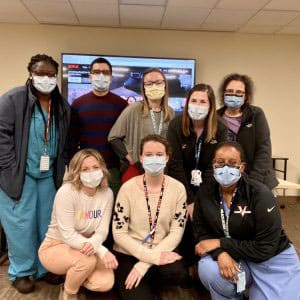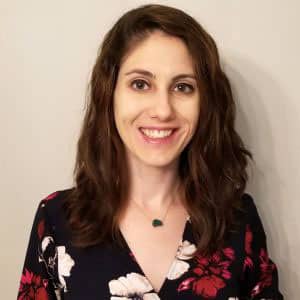
The Diversity and Inclusion Committee at the University of Virginia Family Medicine Residency Program initiated a department-wide discussion on race following the nation-wide protests that began in May 2020, which were a direct response to repeated, racially-motivated forms of violence. Faculty, residents, and medical students involved in the Student National Medical Association (SNMA) held a town hall to debrief about social and political unrest and to discuss action items.Since then, the resident subcommittee (Aviva Friedman, MD; Nadia Saif, MD, MPH; Sarah Seifu, MD) has continued this important discussion in several ways. They created an Anti-Racism book club, which is open to all faculty, residents, and clinical staff. The subcommittee wrote and edited anti-racism messaging for posters displayed throughout our clinic halls. Our department has also devoted a monthly session on anti-racism into our weekly didactics. These sessions focus on addressing healthcare inequities, learning the history of racism in medicine, and practicing how to recognize and confront micro-aggressions. We hope to keep the conversation going by increasing our allyship and fostering a safe space to listen, learn, and support each other.
Click Here for a living document on google drive with books, videos, articles, social media accounts/organizations to follow and donate to, and other anti-racism resources.
Please contact Dr. Seifu with any questions.

Wellness Q&A with family physician Dr. Tasha Gaige
Tell us about your background and career path in family medicine.
I went to medical school in Poland with most of my clinical work done in the UK and US. I completed my family medicine residency at Wheeling Hospital in Wheeling, WV. After residency I went to work at MedExpress Urgent Care for about 2 years, then transitioned to work as a Hospitalist when I moved to Virginia where I have been working since 2019.
How did you get interested in wellness?
I saw an email one day from AAFP for their Leading Physician Well-being program and was intrigued. Residency is/was such a stressful time for everyone, myself included. After residency I made sure no matter where my career went, that I would make time for family and have balance in my life. Yet no matter where I go or what kind of work I do there is still burnout that is rampant everywhere in the healthcare industry. I was lucky enough to be accepted to the LPW program and hope to use the knowledge gained to support my colleagues in medicine.
How does LPW work and what do you hope to learn?
The AAFP’s Leading Physician Well-being program is a 10 month program that runs January through October. 2021 is their first year which is very exciting to be a part of. They have put together an amazing team of physician educators. It’s done virtually with a mix of webinars and various other didactics. It focuses on leadership skills, education on physician burnout, and improvement projects. One project is personal improvement and the other is system wide improvement. I’m most looking forward to becoming more knowledgeable regarding ways we can improve the overall environment of healthcare so everyone thrives.
What kind of wellness practice can residents incorporate into their routine?
Check out my 5 minute audio recording about cognitive reframing. It is one of many tools that can help people add some positivity to their day. Essentially it is putting a pause on the narrative going on in your own head and intentionally altering it to be different. As an example, when someone has kept interrupting and slowing down your work day with all their questions, you can pause the annoyed frustrated voice in your head that is wishing you could just tell them to go away. Then you reframe it in whatever way you want. You can make it humorous or uplifting. Like, “they keep coming to me because I am the most fun person in the office and they aren’t afraid to talk to me.” That way, instead of leaving work grumbling about how that person made your day harder and how exhausting they were, you leave thinking “I feel really good about myself, because I’m their go-to person. I bet I helped them a lot.”
What’s the best advice you’ve received related to wellness?
One of my favorite comments I heard from a presenter at AAFP’s annual Physician Health and Wellbeing Conference was “don’t let your wellness project be the reason you burned out.” So many of us want to do great things and work hard, but it’s so easy to get sucked into giving more and more until you feel like you have nothing left. It’s so important to know when to say “no.” Learning how to advocate for your own wellness is crucial to having a long and fulfilling career. It doesn’t make you any less of a doctor. Self care is not selfish.